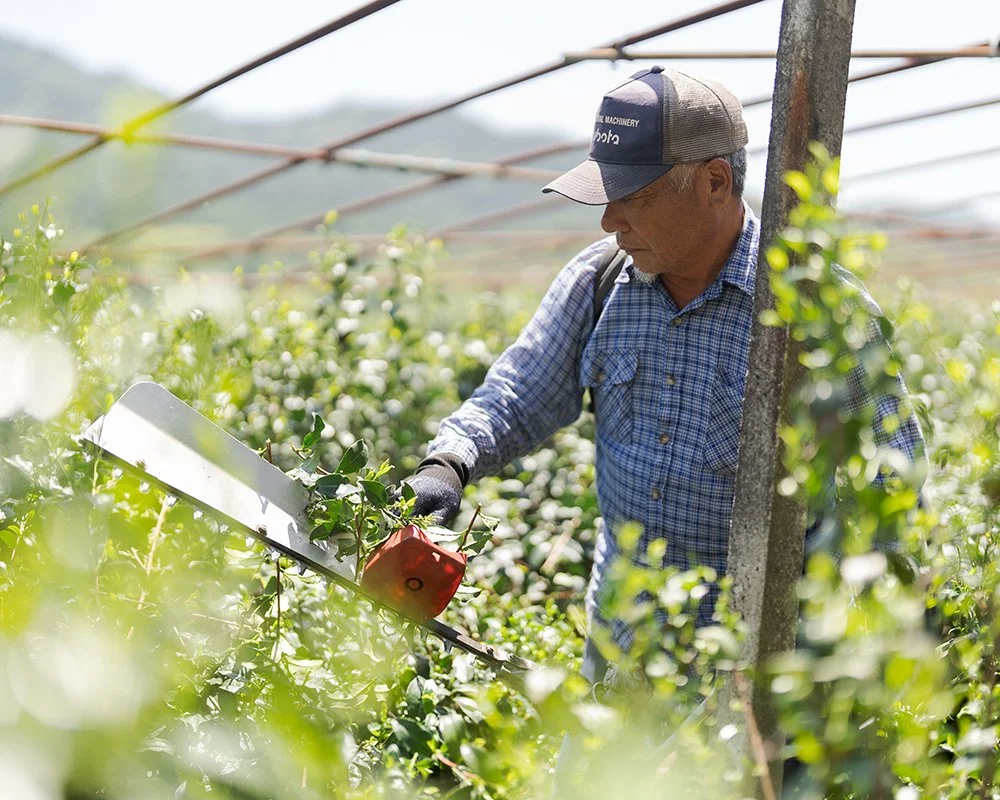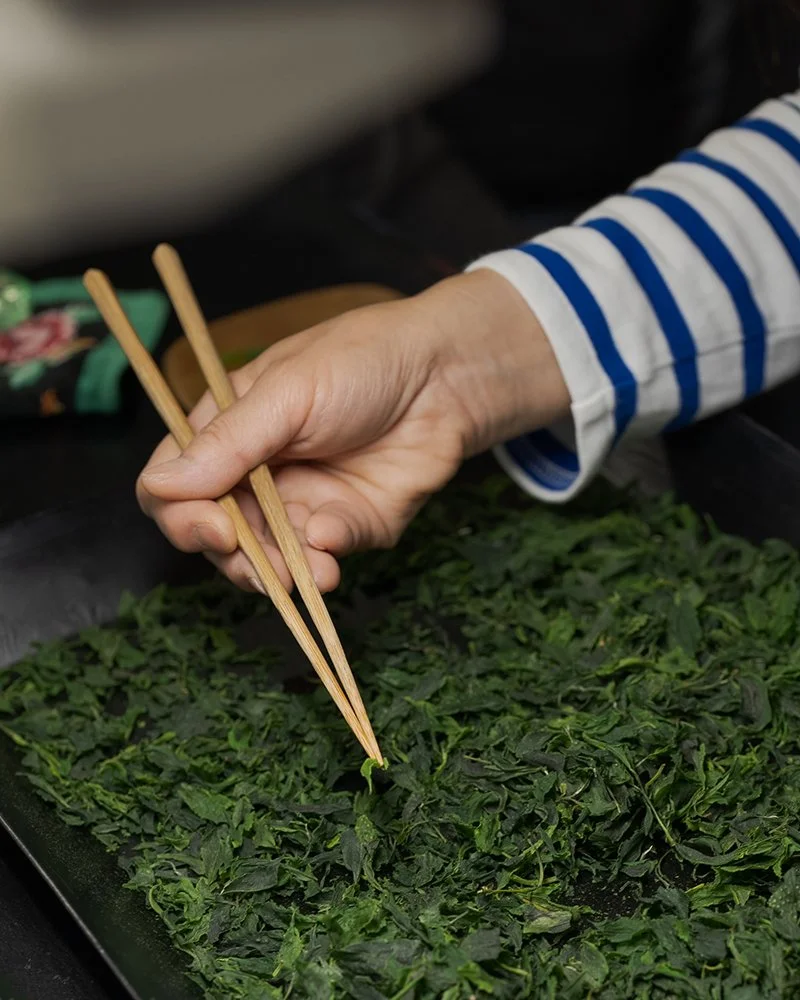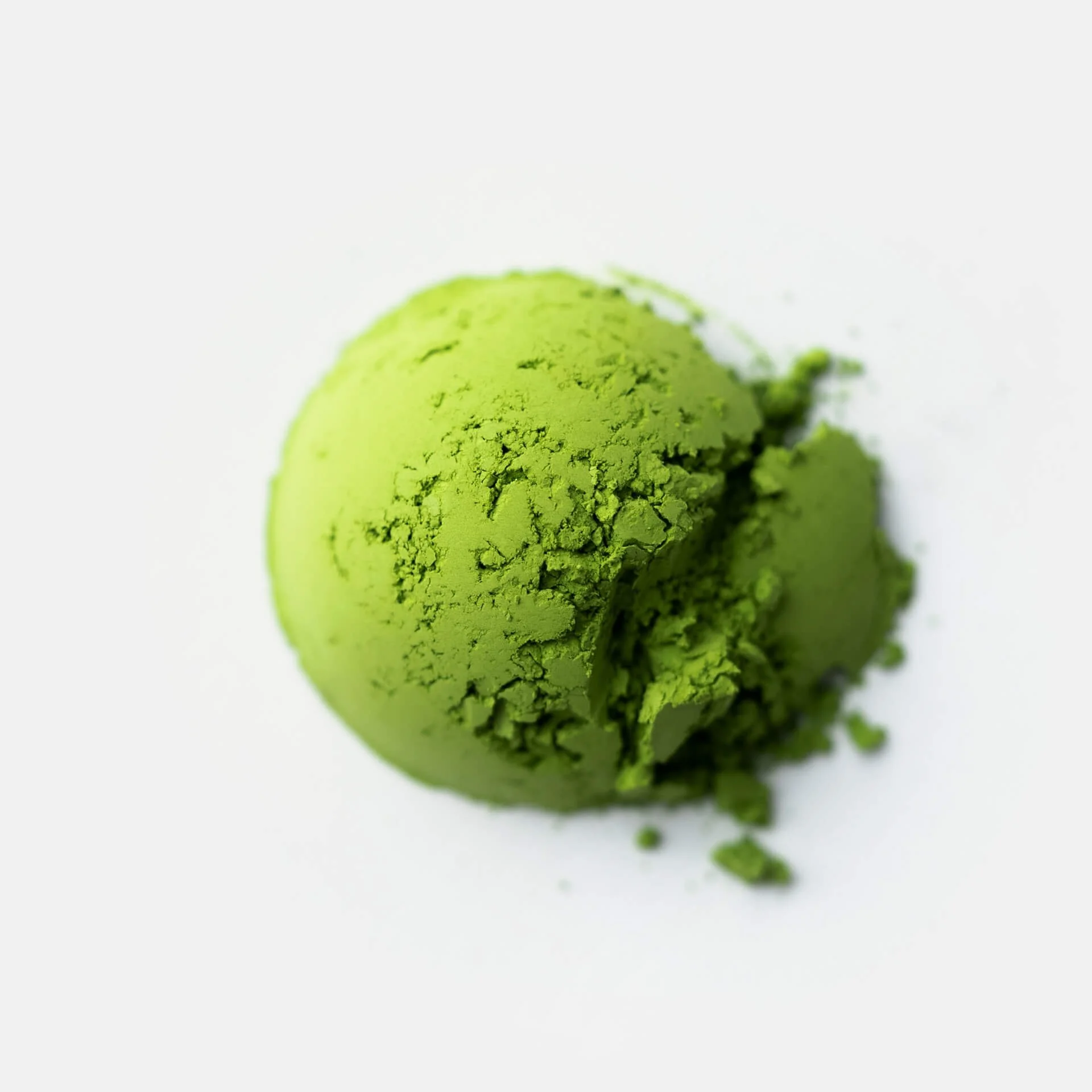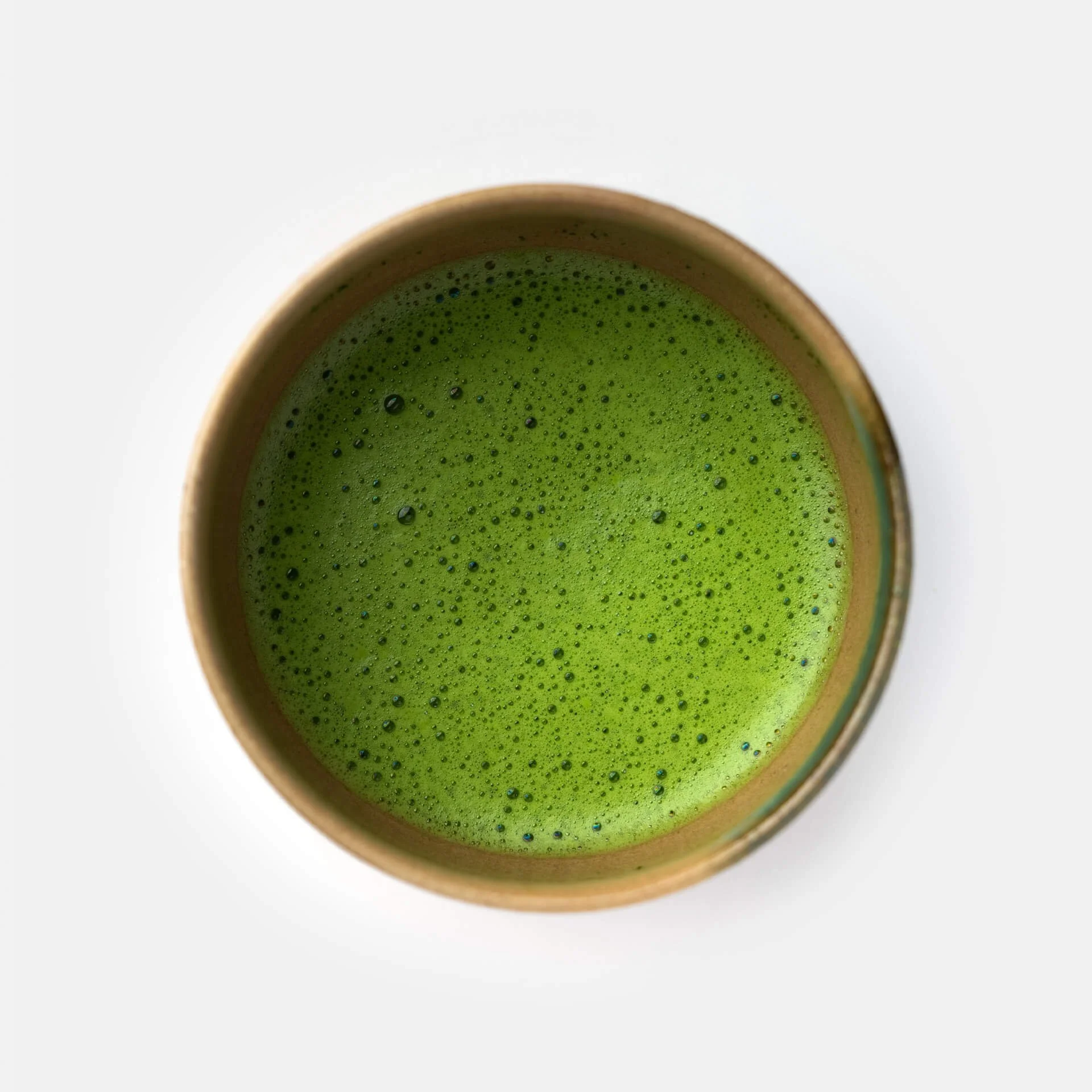MMC 06/23: Tsujiさん Gokou (ごこう) Uji Matcha
Matcha Mill Club is our monthly Matcha membership, where we stone-mill a new single-cultivar Matcha and ship it out within 24 hours of milling every month. This article details the Matcha we shipped for June 2023!
Dear reader,
This month we have a lovely Matcha from a young, inspired farmer in Wazuka, Kyoto. Surprisingly, he’s a first-generation producer who moved to the region to escape the urban life in Tokyo.
Japanese tea is in a waning period. Many of the producers are getting older, the young are not continuing generations of farming, and – as you know – the population of Japan is decreasing.
I’m writing this email while in Uji, Kyoto. The busy harvesting season already finished last month in May, and most of the tea leaves have been processed into Tencha.
June Tea Tasks
Allow me to overgeneralize a bit, and describe the two primary tasks the farmers busy themselves with now, in the month of June.
Trimming
First, for the farmers that only do one tea harvest per year (Ichibancha) - the bushes must be trimmed. Some bushes are cut from shoulder height to knee height.
This allows the tree a full year to grow and concentrate all of its efforts on producing spring buds that will be harvested the next spring.
Farmers that only produce one crop a year will have a superior-tasting tea as the plants have a full year to rest before harvesting.
Farmers that choose to do multiple harvesting in a year (known as Nibancha for two harvests, Sanbancha for three harvests, or just Bancha for more than that…) will have a higher yield to sell - by exponential degrees.
And, so you know: better quality tea does not necessarily mean a higher selling price. Like houses – the prices are roughly set by the neighborhood.
Competition Preparation
Every year, there are tea competitions that take place. Here in Uji, the farmers prepare to send their competition-grade Matcha.
Each farmer must prepare 4KG of their best material. This tea must be hand sorted, mainly, and painstakingly, by hand. For most tea farms, it is a family tradition to work together in a special room in their home.
For Shimizuさん, a 10th generation tea farmer in Uji, the process takes a family of 4, working non-stop from sunrise to sunset, 2 full days to prep the 1KG of tencha.
After the teas are judged, the most superior is chosen as this year's best. As you can imagine, such an accolade is precious to receive for a family.
Afterward, all the remaining Tencha goes to auction. The placement of the Tencha also affects the price. For example, last year's (2022’s) first prize Tencha sold for $5,000 per KG.
This is also why top-tier Tencha farmers usually do not set the prices of their Tenchas to millers (such as Ooika) until after the competition – as higher rankings will justify higher tencha prices.
This Month’s Matcha: Uji
Speaking of tea competitions, Tsujiさん, the producer of this month’s Tencha (unground Matcha) is perhaps the highest-awarded tea farmer in Japan.
His commitment to exceptionally high-grade Matcha is very apparent when you taste any of his teas - which are otherworldly umami and rich.
The Gokou Cultivar
The Gokou cultivar originates in Uji and is primarily used for Gyokuro. In fact, I had the absolute pleasure of meeting with Nishideさん, a multi-generation tea expert whose Uji-based company has an over 300-year history.
Nishideさん explained that for him – Gokou is most suitable for Gyokuro because of its complexity of flavor and mouthfeel though this complexity is not best expressed as a Matcha. When you taste this month’s Matcha, what do you think?
Tasting Notes
Expected savoriness common to all of Tsujiさん's Matcha. Deep emerald green, oval textural widest at the center point of the tongue, while sharpening towards the ground and back.
Refreshing. Juicy, mouthwatering earthy that leans towards stone rather than soil - perhaps rice husk. Wavelike, with a pleasant oscillating distance between the highs and lows.
Share your Experience
What did you think of this month’s Gokou? I’d very much like to know! Post your thoughts on Reddit, Instagram, or otherwise and tag us or email us to let us know!
You can also follow us on Instagram at @ooika.co or on YouTube here.
Sincerely,
Marc
Ooika’s Miller




